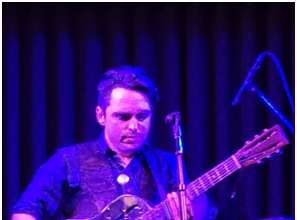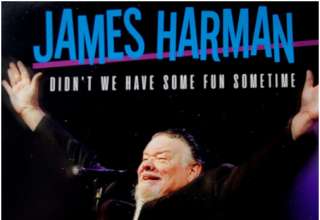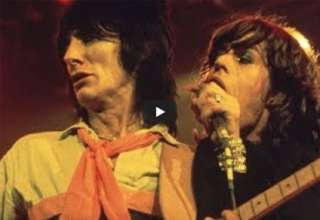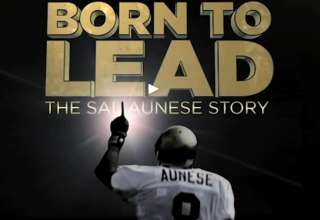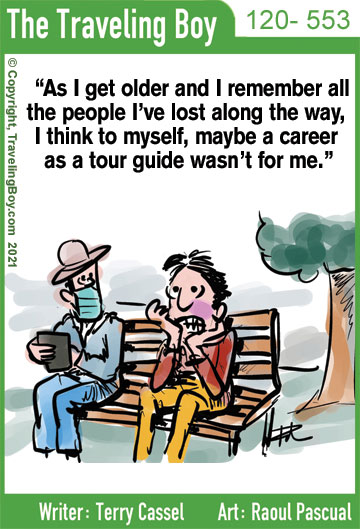Sugaray Rayford is literally, larger than life…a gentle giant in both stature and compassion. Multiple times during our conversation we were interrupted by friends and fans wanting to take a picture with him or just shake his hand. Mid-sentence he would stop, smile for the picture and thank them for coming out to see him. Soft-spoken unless he’s onstage Rayford is both a storyteller and musicologist but is quick to credit those around him for his success. He places the most emphasis on being where his is today on the love, encouragement and support of his wife, Pam.
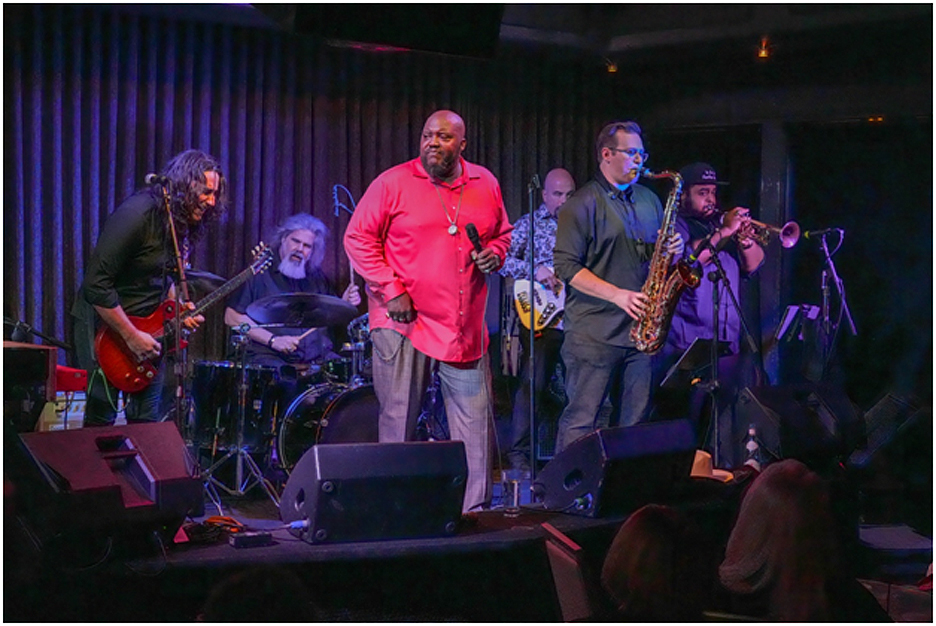
Most know Sugaray as a Grammy-nominated, Marine Corps veteran who has released six albums under his own name and is currently working on his seventh. If you’re a blues fan you probably know he’s been recognized by the Blues Music Foundation on multiple occasions as the Soul Blues Artist of the Year and in 2020 he was also honored as the B.B. King ‘Entertainer of the Year.’ What you might have missed is that Rayford has starred in two different theater productions including the Tony-award winning stage play ‘Ain’t Nuthin’ But the Blues.’ He has multiple television and commercial credits and his music was featured on the network television series, ‘Person of Interest.’ What’s really surprising…that was Sugaray’s voice at the end of a decade’s worth of national McDonald’s commercials singing ‘BaDaBaBaBaa.’
His road is long and wide-ranging and it all started with drums in church. “Drums in church, yeah!” He smiles. “At five years old, Bethel Church of God in Christ, drums…crazy.”
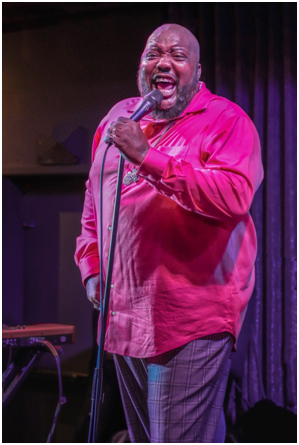
Did you always know music would be your direction? “No, actually I never thought it would. My mother always used to tell me I couldn’t sing I couldn’t dance…my mother was probably the most amazing singer I’ve ever heard.”
We have to talk about your songwriting. You deal with a lot of social issues in the world today. Did your military service have an impact on that direction, as an example the song ‘Invisible Soldier?’ “I hadn’t really spoken about any of the military stuff, or PTSD in my other albums, but you get to a certain age and I’m not sure what that age is; but when you get to a certain age you get a real bad case of I don’t give a damn what people think. Don’t ask me if you don’t really want to know. So I’m at that age. I feel comfortable now, where I am musically and who I am…to talk about it. And I’ve talked to a lot of other Vets, and they’ve all told me, ‘talk about it, it’s cool because it might help somebody else.’ And I’ve always like putting things to music. When it’s hard to speak about a difficult issue, I wrap them in a real nice, funky tune. When you’re tapping your feet and listening to the music but if you listen to the lyrics and hear what I’m actually singing about you’ll maybe think a little about our Vets.
Almost like church…The music brings them into the tent and then you are able to share the message? “It does but only by this much…I don’t sing anything that I haven’t lived! All the albums and all my collaborations, everything I’ve ever sung about has actually happened. I do that not to be a stick in the mud, but I was always taught in the church that you can sing a lie just as easy as you can tell a lie. So I’ve just always kept it real.”
Your work ethic and dedication to your craft seems to be paying dividends; Blues Music Award winner as Soul Blues Artist of the Year in 2019 and 2020 along with B.B. King Entertainer of the Year honors and a Grammy nomination for your album ‘Somebody Save Me.’ “Lucky, I always say lucky. I was up for a Maple Blues Award in Canada a few years ago. That’s their version of the Grammy, but I was up against Buddy Guy and Mavis Staples…it’s all about luck.” (laughing)
Let’s put it in perspective, you’re being considered for an award in the same category as some of America’s national treasures. That alone says you’re pointed in the right direction. Speaking of which, your road has taken you through Southern California before. Didn’t you live in North County, San Diego? A little village called, Fallbrook? “The Avocado capital of the world, baby!” (laughing)
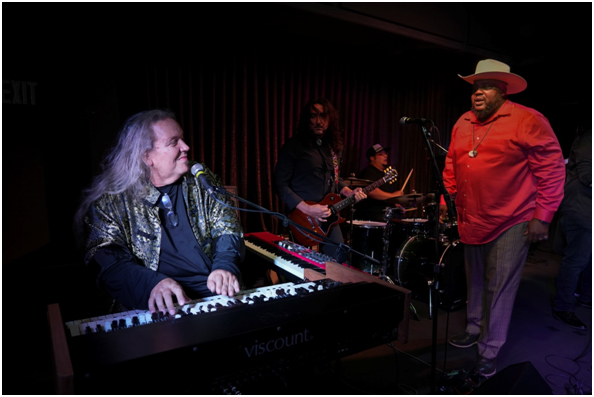
Talk some about your band back then, Aunt Kizzy’z Boyz. Any favorite memories? “Fallbrook and Temecula…Back in the day. You know back then we had so many venues we could play. We played a lot and we played in all the casinos. Those casino gigs were five hours and we played Wednesday, Thursday, Friday, Saturday and Sunday. One of my favorite memories was opening for Etta James.”
Your musical path has taken so many turns, and now theater. You’ve appeared in the Tony Award-winning stage play, ‘Ain’t Nuthin’ but the Blues’ as well as the theatre production of ‘Low Down, Dirty Blues.’ “When I can, I love doing theater but that’s a lot of work. Go to see plays; those people work hard, 18-hour days. I’m a hard-working musician, but that was something else. We were doing eight shows a week, six days a week and no understudy. With one day off. My very first play was ‘Ain’t Nuthin’ but the Blues’ and I had never acted before. But they treated me like gold. The production of ‘Low Down, Dirty Blues’ was written by Randal Myler and Dan Wheetman and I played opposite Felicia Fields. Felicia was the original Ophelia in the original Broadway production of ‘The Color Purple.’
You’ve done film trailer soundtracks, national commercials and your music was used in the network television show, ‘Person of Interest.’ “A lot of that stuff happened when I moved to Los Angeles. When I moved nobody there knew who I was and that was a blessing and a curse. But my wife told me, because I was complaining about not knowing anybody, to get off my so and so and go down to this jam. So I went to this jam at a little place called Cozy’s in the Sherman Oaks area. Of course they didn’t know me from Adam, but I put my name on the list. I went back two weeks in a row and the third week they let me get up and sing. And about five days after I did that I got a call from the owner asking me if I wanted to take over the pro jam? I said that would be cool but I really didn’t know anybody in L.A. and I didn’t want to ruffle any feathers. L.A. is a hard place to get around in as a musician and it’s very political. I just want to stay in my lane. But I wind up doing it and one guy in L.A. the guy that produced Aunt Kizzy’z Boyz last album, Chuck Kavooras and Chuck said, ‘Ray, if you’ll run this pro jam I’ll bring in all the players and you’ll just sing.’ I said okay Chuck; just don’t leave me out here with nobody on Monday nights! From that, Chuck knows everybody so we were playing with Al Kooper and we became good friends, Steve Lukather, Vivian Campbell…there’s a video out there with me, Jim Carrey and Slash doing old Black Betty! The Dramatics, Mike Finnigan, Lifehouse, the Pussycat Dolls, Hubert Sumlin and Honeyboy Edwards with my buddy, Jimmy Vivino they all came through and played. I remember one night I think it was Epic Records, they brought in this little Australian girl, Orianthi…this is before all the Michael Jackson connections, and she was playing in my jam at Cozy’s. It would end up being a gold mine for me and Cozy’s just kick-started everything for me. Because all the big named cats were coming through I wind up doing my first commercial with Stevie Wonder’s band. It was Campbell’s Soup or something and that started it…and no agents, just other musicians that knew me and called to ask me to do it.”
Sugaray and Slash at Cozy’s
Talking about influences, I read Otis Clay and Cyril Neville gave you some wonderful advice. “Yes, I was in Lucerne, Switzerland at a great festival and I was opening up and sitting behind me in the wings before we played was Cyril Neville, Otis Clay and Buckwheat Zydeco. I’m trying to look like I’m not nervous, but it wasn’t easy. I did my thing and they were waiting for me back in the green room and they just told me, ‘keep on keepin’ on.’ At that time I was a young buck and they said ‘we need young people so do your thing.’ Otis Clay told me, ‘Sugar, there’s enough guys playing Mississippi blues and enough guys playing Chicago blues, nobody is playing Soul blues, anymore. Where are the O.V. Wrights, where are the Bobby Bland’s, where are the Little Milton’s? So I took it upon myself, which is why I have such a large band to bring back that Soul blues sound.”
Your band is like a locomotive… “We were in Marseille, France a few months ago and a bouncer there changed the name of the band, it’s always been SRB and he said, ‘No, no, no from now on your band is called the War Machine! And incidentally, they gave us the key to the city, so that’s pretty cool.”
What inspires and motivates Sugaray Rayford? “You know, I don’t know! I write what is happening to me, just real life. I just keep saying I’m lucky, but my wife Pam always says, ‘lucky is being prepared, work hard and be ready for any opportunity.’ My inspiration as I get older at least for me; is to just do a good job at every show. That means so much to me, and I’m not just saying that. My inspiration is the people that come out. It’s not so much about the money as it is, the time. Everybody has money and you can get money back. But the time it takes to drive here, to park, to walk in and do all that stuff and that people would do that…that’s my inspiration!”
Your music doesn’t have any limitations, no boundaries. How do you do that? “I’m just being me. It’s just literally being me, and enjoying the moment and hoping the people come along and enjoy it with me. Which is why we don’t do set lists and we don’t do all these tricks, it’s just an old school band, good songs and good musicians having fun.”
Your ‘live’ shows are incredibly interactive. You talk to your audiences, and they are engaged with you. “I am from the church!” He laughs. “That’s part of it, dude. But think about it, B.B. King, Howlin’ Wolf and all those older blues cats from the last generation, they all talked to their audience. I don’t know when it became this thing if you’re a bluesman you’ve got to be frowning with a bad hat and never look up at the audience. I don’t know where that came from. When I meet young blues guys now I tell them there’s nothing wrong with talking with the audience and having a good time. This is not acting, there’s no third wall just be yourself.”
You’re also known for your song lyrics, do you have a process in your songwriting? “No, you know Pam; my wife started me off probably about fifteen years ago with a journal that I write in everyday. It started originally to help me with my PTSD and anxieties, stuff like that. When I left Delta Groove Records I was trying to figure out what record company I wanted to go with, I had Alligator, I had Ruf and then I met Eric Corne from 40 Below. We were in Memphis sitting in front of the Orpheum when I met him and I just loved the ideas that he had. I just finished ‘The World That We Live In’ album with the Dap Tones band, you know the Dap Kings with Sharon Jones and Amy Winehouse? And I had just done the album with them and I didn’t want to go back and do a traditional 1, 4, 5 blues album. I wanted to stay in this Soul lane, Soul blues lane but I also wanted to expand. I had thought from the days of the Mannish Boys and Aunt Kizzy’z Boyz, the Blues Giants and all the other bands I had played with that I had started getting pigeon-holed. As a singer there were a lot of things I could do, and still have the integrity…so I signed with Eric (40 Below Records). Some people are just born wordsmiths. Eric is a great wordsmith. He literally, has my journal now. He’ll go through it and see a passage and he’ll call me up and ask if it’s okay to write about this? I’ll go yeah, this is what happened and I’ll explain the story to him in more detail and then we’ll collaborate and start writing the album. As you can tell he gave my work depth and more complexity because he’s a wordsmith. I like it because it’s challenging for me. The other thing I like is people understand what I’m trying to say now, more so than when I was with the Mannish Boys or Aunt Kizzy’z Boyz. Back during the Pandemic when we released, ‘Somebody Save Me’ people were talking about ending their lives; that song literally turned them around.”
Sugaray Rayford – ‘Invisible Soldier’
There’s so much positivity in you music… “There always will be. I always tell people and it sounds cliché but it’s true. Government’s one thing but people are another and unfortunately because of the times we live in people get a lot of false and wrong information and the person with the loudest noise gets the most attention. I still believe in my heart of hearts the majority of Americans are not like that. I travel all over this country and I meet people from Mississippi to New York and everywhere in between and I’ve met the salt of the earth people. And there’s one in every crowd but I’m not going to let them sway me, that says this is a bad country or everybody in this country is bad because I don’t believe that.”
You address so many topics in you music, both original and covers and most have an emotional connection for you. “I don’t do any songs, even if I do covers, there are no songs I’ve done, other than ‘Grits Ain’t Groceries’ are all things that I’ve actually lived. It makes it real and I don’t have to try and emote. They are actually real feelings that I had when it happened to me.”
It’s like the core of your creative. “I guess you could call it that. Everything I write is something that I lived. The last six albums, everything I write has come out of my journal.
You had your own YouTube channel. “You know I needed an outlet and with all the craziness between Covid and Pam with the cancer I really missed the camaraderie of other musicians. I was telling my media guy I know so many musicians from so many different genres and that’s why I brought so many people on, like my buddy Mike Finnigan. And you know he passed away just 48 hours after that. I only wanted to talk about 15 minutes but Mike wanted to talk and it was like three hours. Finnigan was one of those guys that should have been world famous. Most people in music know him, all those years with Bonnie Raitt, Etta James even Taj and the Phantom Blues Band.”
Tell me about your connection with Emerson, Lake and Palmer. “That was at the Baked Potato. Did you ask my wife about that, because she would have laughed…because I didn’t know who they were.” (laughing) “It wasn’t until we got home and she said, ‘you have no idea who that was, huh?’ No! ‘It was Emerson, Lake and Palmer.’ This has happened to me several times, once I was playing at the Maui Sugar Mill. I was in L.A. and I got a call from Jimmy Vivino and my buddy, Kal David and they were playing at the Maui Sugar Mill in Tarzana. Jimmy calls me and says ‘Sug, you in town?’ I said man; I’m just sitting here doing nothing. So he says, ‘why don’t you come sit in and play?’ So I get there and it’s Kal David, Jimmy Vivino, Nate Watts (Stevie Wonder) and Gary Mallaber (Steve Miller) and I get up there and I’m singing and there’s a guy there playing harmonica, I thought he was Australian, I didn’t know. I was just gonna’ do one song, we end up doing five, and we’re having fun. We take a break and Kal and I are talking, I hadn’t seen him for awhile, shooting the breeze and the little Australian guy walks by and says. ‘Hey Mate, you’re the real deal, I appreciate you. I enjoyed playing with you, let’s do it again.’ Okay cool man, thank you very much I appreciate it and he walks away. Kal’s leaning against the wall and he’s laughing at me…again! Kal goes, ‘Ray, you have no idea who that is…do you?’ I go no, but he’s a pretty good harmonica player. He says ‘that was John Mayall.'” (laughing) “So, the funny thing is, we’re now label mates! I’ve talked to him a couple of times and I asked him do you remember that? He goes ‘I remember that Ray, I remember meeting you.’
You talked briefly about your commercial work. I didn’t know you had a McDonald’s commercial. “I ended up doing the McDonalds commercial, I was in Milwaukee doing the play ‘Low Down Dirty Blues’ and I got a phone call that McDonald’s wanted me. It’s one thing to be in L.A. or San Diego I would have a studio to record. Thank God for the sound crew at the theater, the guys were so amazing they built me a sound booth with great microphones and I just went in and recorded five demos of (Sugaray sings) BaDaBaBaBaa and the last one, BaDaBahBahBaa! And I’ll be darned, they sent me a check. And they’ve been using that for like 10 years now. But that BaDaBaBaBaa…that was me. And it paid well!” (laughing) “Those commercials, we call it mailbox money. You go to the mailbox and Whoa! I wasn’t expecting that! That’s great!” (laughing)
Your shows are always different, the songs, the conversation between songs, it’s the entire Sugaray experience. “Well you notice what I do, first of all…no set list! The second is I don’t like segueing music, from one song right into the next song. I believe in that pause, I use that pause. I want to tell people what that song is about and I also want to engage the audience because there’s more than one way to entertain. So I’m going to tell jokes, I’m going to tell serious stories and we’re going to sing great music. So when it’s over and done with, sometimes people sitting back there are going, ‘man, what just happened?’ because you have such a range of emotion, you’re laughing at this joke but you realize this song is about something serious…but you’re Entertained! And the name of the job is…Entertainment!” I have a problem sometime with some blues musicians who’ve gotten so lost in; I need these strings, I need this amp, I’ve got to look like this, gotta’ have on the bowling shirt, certain hair and I’ve got to look like I’m serious about playin’ this music. I’ve walked up to people and said, listen you understand this music comes from slavery days and you had one day off. Do you understand that very rarely did any bluesman from Son House to Robert Johnson, none of them played slow blues? They’d have been hung. People look at me like, ‘what do you mean?’ We’ve been working in the field picking cotton for six days, we got one day off and I don’t want to hear no slow blues. This is huck-a-buckin’ I want to stand next to a woman; I want to drink and yell and scream at the moon. There’s nothing wrong with a slow blues, I just believe if you’re going to play a slow blues in a ninety minute set, you do it once in a night. This music was always about having a good time, some people take that as it means pain, and no it was exorcising that pain and enjoying themselves.”
Willie Dixon use to say it was a form of communication. “That’s why the old blues guys come up to me and call me a field hollerer. I’m not a crooner; I’m a field hollerer because I would be that guy whose voice is big enough at the plantation that I’d be yellin’ out the cadence as we sing it. It’s just weird when you go through time that some of those nuances get lost and lose what it’s really about.”
It’s like field hollers were really the first internet. “Yeah, they really were the first tele-communication.” (laughing) “No doubt.”


